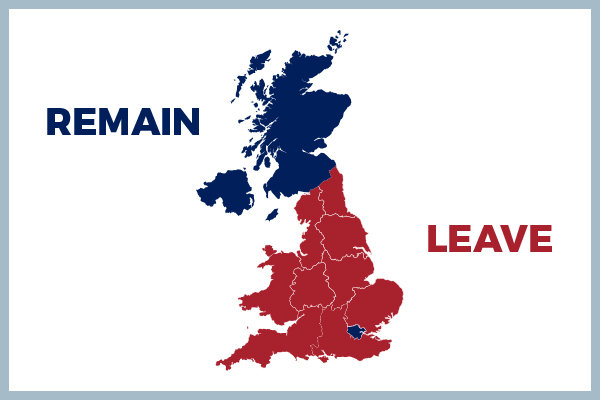It has quickly become apparent that the result of last week’s referendum is likely to have major implications for the devolved nations of the United Kingdom. With Nicola Sturgeon in Brussels this week, questions remaining over the impact of the majority Remain vote in Northern Ireland, and uncertainty over the impact of leaving the EU on Wales; over the coming months we will get a better understanding of the implications. And, no doubt, these will be widely reported on.
What is less clear is: what Brexit means for the metro devolution agenda, and indeed the Northern Powerhouse. Over the past two years this has been a major focus of the Government, driven in a large part by Chancellor George Osborne. However, the result of the EU referendum now has the potential to dramatically affect the future of the metro devolution agenda.
There has been some speculation that Brexit may impact Greater Manchester and other areas that have agreed their devolution settlements, in reality though, this seems unlikely. The deals, already agreed, are now in a strong position to move forwards; in particular those with mayoral elections scheduled for 2017 should see a minimal impact, for example Greater Manchester, Liverpool and the West Midlands.
However, in the short-term it seems likely that the pause button will be hit on the deals currently being worked on and those which are yet to be agreed.
In the longer-term wider questions must now also be asked around the Government’s future commitment to the metro devolution project itself.
Over the past two parliaments it has been George Osborne, alongside his ally Greg Clarke, who have driven forwards both the Northern Powerhouse project and the wider metro devolution agenda. With Osborne’s days as Chancellor numbered, the influence of the great champion of regional devolution will diminish.
The uncertainty over Osborne’s future has already led to Breckland Council in Norfolk rejecting the proposed Norfolk and Suffolk deal over worries that the project will no longer have the necessary political support in Government.
In addition, recent attempts to progress devolution in East Anglia and the North East have demonstrated how difficult success can be. In the North East, Gateshead has abandoned the project completely, while the East Anglia deal has been riven by disagreement. With these challenges fresh in the mind, a new Conservative administration may well take a view that the devolution agenda is failing and that attention should in fact be focused elsewhere – namely negotiating the UK’s complicated withdrawal from the EU.
Metro areas are also major beneficiaries of EU funding and Brexit has major fiscal implications for them. With this in mind Joe Anderson, Mayor of Liverpool and likely Labour candidate for Mayor of the Liverpool City Region, has stated that he will personally look to negotiate a Brexit deal for his area.
However, Brexit may also have an alternative impact on metro devolution. Already we have seen calls from London for greater control and greater devolution to be granted in the wake of the result. And Lord Porter, Chair of the LGA, has already said that local government could become the major beneficiary from leaving the EU. With that in mind Brexit, could prove to be a moment where devolution of powers takes a step forward. If the Government listens to London and offers a comprehensive deal, potentially including fiscal controls, then this may inspire other metro areas to further develop their asks.

